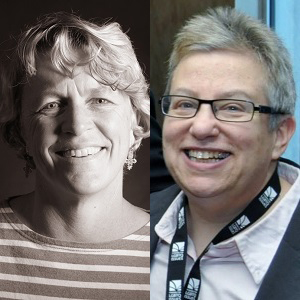Tuesday, June 2, 2015
 by Annette Lanjouw, Vice President Strategic Initiatives and Great Ape Program, Arcus Foundation
by Annette Lanjouw, Vice President Strategic Initiatives and Great Ape Program, Arcus Foundationand Cindy Rizzo, Senior Advisor, Evaluation & Strategy, Arcus Foundation
There’s been a lot of discussion in the philanthropic community about the need for funders to maximize our impact by engaging in “beyond grantmaking” activities. Known as “Funding plus” by some foundations in the UK” this concept involves deploying all the tools that foundations have at our disposal—convening, commissioning of research, pursuing policy change, leveraging new resources—in order to advance the change we seek to make in the world.
At the Arcus Foundation, the strategic framework that defines the work of the foundation demonstrates this concept in the three primary ways we pursue our work: Listening & Learning, Leading, and Strategic Grantmaking. We view these three roles as the critical cornerstones of achieving change.
Our Great Apes Program, which is working to conserve apes and their natural habitats and ensure the well-being of apes in captivity, employs all of these tools in our philanthropic kit toward these ends. We view our core purpose as helping move culture and institutions, rather than just moving funds.
Of course we award grants, some ten million dollars annually to organizations whose project goals are strategically aligned with our objectives of reconciling economic development with conservation, strengthening the effectiveness of the conservation movement and eliminating the exploitation of apes. In addition, we regularly convene stakeholders into what we call Think Groups—small groups of experts and practitioners focused on specific issue areas or geographic regions. Our Think Group participants help educate us, keep us current on research developments and on realities in the field. They also assist in identifying strategies for moving forward with issues like the expansion of palm oil plantations in Africa or the need to better understand how culture change can influence behavior. Think Groups, site visits and conference attendance are the active ways in which we engage in listening and learning.
So what of our role as Leaders? This is the role in which we take the most care to ensure that we are adding value, filling gaps in the field, and working authentically with our partners. Given the funder-grantee power dynamic, it is a tricky business for a foundation to claim the role of leader. We do so with the greatest of care and with the most humility we can muster.
How have we led? First by filling information gaps in order to ensure that our grantees and other stakeholders have the most up-to-date and comprehensive information that will enable them to set appropriate objectives designed to achieve impact. In 2009, we worked with the Max Planck Institute for Evolutionary Anthropology and the UN Environment Program/World Conservation Monitoring Center (UNEP WCMC) to create an online portal that brings together data from all the field sites where apes are being studied or monitored, in order to track and report on the numbers of apes in the wild and the most recent data on the threats to their survival, including habitat degradation, hunting and disease. This portal, called APES Portal is now a collaboration including the Max Planck Institute, UNEP WCMC, Section on Great Apes of the IUCN Primate Specialist Group, the Jane Goodall Institute and the UN Great Apes Survival Partnership. Work is ongoing to also link the data on apes to the World Resources Institute Global Forest Watch.
More recently, we have initiated a publication series called State of the Apes, an in-depth examination of current threats to great ape survival, based on contributions by diverse experts from the scientific community, industry, government and the NGO community. The first edition focused on extractive industries, such as mining and logging. The second, now in production, is looking at industrial agriculture. The Arcus Foundation acts as editor and co-author of the work.
Another important example of our leadership has been our effort to collaborate with other funders to expand support for organizations working to conserve great apes. The Partnership for Great Ape Conservation is an expanding network of funders from around the globe convened by Arcus to discuss our strategies and approaches and to present high impact co-funding opportunities. In the 6 years that the Partnership has been meeting, we have leveraged an additional $10 million for ape conservation, and it is now gratifying to see our partners begin to take the lead themselves in pursuing new areas of support to ensure great ape survival.
Grants are but one of the many tools that have been helping us resource the field and advance our program goals. We believe that by balancing financial support with effective listening and learning as well as mindful leadership, we can maximize our impact as a foundation working to achieve positive change.
